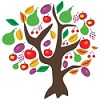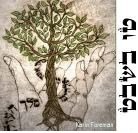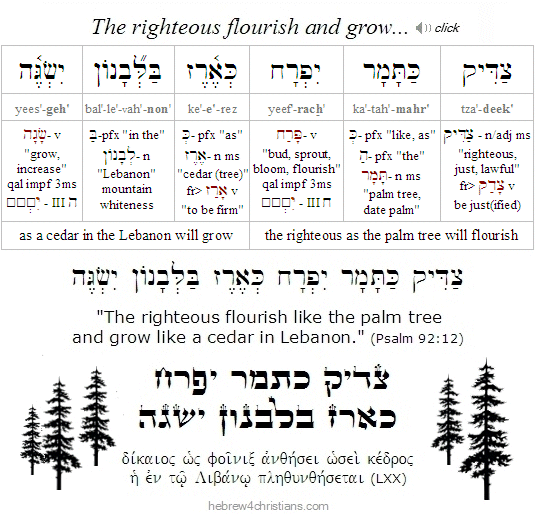|
The Torah alludes that human life is like "the tree of the field," i.e., ūøų╝ų┤ūÖ ūöųĖūÉųĖūōųĖūØ ūóųĄūź ūöųĘū®ų╝ūéųĖūōųČūö, Deut. 20:19), and many people therefore observe Tu B'Shevat as time to assess man's place within creation as well. Since God created the world for a habitation (Isa. 45:18), some have pictured the world itself as a "great tree" with human beings as its fruit. Indeed, Yeshua often used such agricultural images in his parables. For example, he explained that people are known by the "fruits" of their lives (Matt. 7:16-20). He likened the spread of his message in terms of "sowing and reaping" (Matt. 13:3-23) and compared the Kingdom of Heaven to the secret working of a mustard seed (Matt. 13:31-32). Yeshua regarded the world as a "field" for planting with different "types of soil" (Matt. 13:38-43), and warned of the "great harvest" of souls at the end of the age (Luke 10:2; Matt. 13:30). He pointed to signs from a fig tree to indicate the nearness of the prophesied End of Days (Matt. 24:32-33). Yeshua also used the metaphor of a "vine and its branches" to explain how his followers are to be connected to Him (John 15:1-6).
The Scriptures explicitly state various laws regarding the use of trees. In other words, there is a "Torah of Trees." For example, "When you enter the land and plant any tree for food, you shall regard its fruit as "uncircumcised" (i.e., orlah: ūóųĖū©ų░ū£ųĖūö) for three years; in the fourth year all its fruit shall be holy, an offering of praise to the LORD; only in the fifth year may you use its fruit, to increase its yield for you: I am the LORD your God" (Lev. 19:23-25; 26:3-4). The Torah also clearly forbids the destruction of fruit trees during times of warfare: "When you besiege a city for a long time, making war against it in order to take it, you shall not destroy its trees by wielding an axe against them. You may eat from them, but you shall not cut them down. Are the trees in the field human, that they should be besieged by you?" (Deut. 20:19-20). Clearly, then, God cares for trees...
The psalmist describes the trees of the forest as singing for joy (Psalm 96:12), just as the prophet Isaiah foretold the day when the trees of the field shall "clap their hands" in praise to the LORD God of Israel (Isa. 55:12). Indeed the wisdom of Torah (chochmat haTorah) is metaphorically called etz chaim, a "Tree of Life," and the ideal righteous man is described as the one who delights in the Torah (ū¬ų╝ūĢų╣ū©ųĖūö) and meditates upon it daily. "He is like a tree planted by streams of water that yields fruit in its season."
ūĢų░ūöųĖūÖųĖūö ūøų╝ų░ūóųĄūź ū®ūüųĖū¬ūĢų╝ū£ ūóųĘū£ųŠūżų╝ųĘū£ų░ūÆųĄūÖ ū×ųĖūÖų┤ūØ
ūÉų▓ū®ūüųČū© ūżų╝ų┤ū©ų░ūÖūĢų╣ ūÖų┤ū¬ų╝ųĄū¤ ūæų╝ų░ūóų┤ū¬ų╝ūĢų╣ ūĢų░ūóųĖū£ųĄūöūĢų╝ ū£ūÉųŠūÖų┤ūæų╝ūĢų╣ū£
ūĢų░ūøū£ ūÉų▓ū®ūüųČū©ųŠūÖųĘūóų▓ū®ūéųČūö ūÖųĘū”ų░ū£ų┤ūÖūŚųĘ
ve┬Ęhah┬Ęyah ┬Ę ke┬Ęeitz ┬Ę shah┬Ętool ┬Ę al-pal┬Ęgei ┬Ę mah'┬Ęyeem
a┬Ęsher ┬Ę peer┬Ęyoh ┬Ę yee┬Ęten ┬Ę be┬Ęee┬Ęto ┬Ę ve┬Ęa┬Ęlei'┬Ęhoo ┬Ę loh ┬Ę yee┬Ębohl
ve┬Ękhol ┬Ę a┬Ęsher-ya┬Ęa┬Ęsei ┬Ę yatz┬Ęlee'┬Ęach

"And he [i.e., the one who loves Torah] is like a tree planted by streams of water
that yields its fruit in its season, and its leaf does not wither.
And all that he does shall prosper."
(Psalm 1:3)

Hebrew Lesson
Psalm 92:12 reading (click for audio):
|



